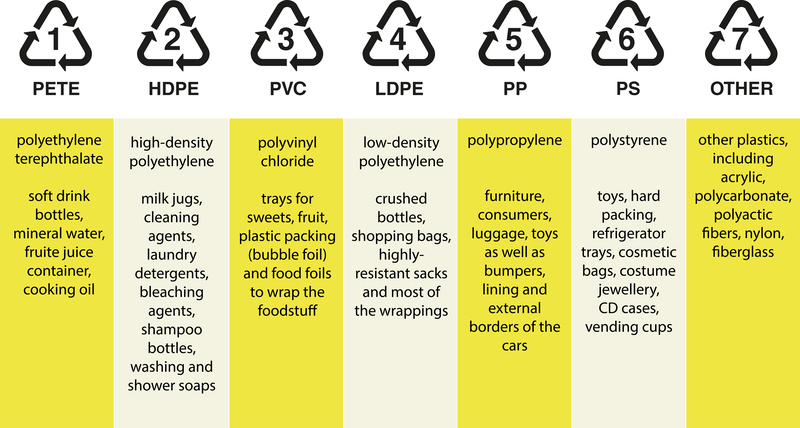Smart Swaps for Lowering Plastic Dependency: Sustainable Choices for Everyday Life
Plastic dependency has become one of the world's most pressing environmental challenges. From single-use water bottles to food packaging, plastic invades every aspect of modern living. The good news? There are smart swaps--creative alternatives that can help build a more sustainable future and reduce plastic in our daily routines.
In this comprehensive article, we'll explore multiple ways you can lower your plastic dependency, make eco-friendly lifestyle changes, and discover products that balance convenience and sustainability. By delving into effective plastic alternatives, you'll learn how even small changes can make a profound difference.

Why Reducing Plastic Dependency Matters
The detrimental impact of plastic pollution on our planet cannot be overstated. Here's why finding alternatives to plastic is so important:
- Plastic pollution threatens wildlife habitats and disrupts ecosystems.
- Microplastics contaminate food and water supplies, posing risks to human health.
- The petrochemical industry fueling plastics contributes to climate change.
- Most single-use plastics are not biodegradable and accumulate in landfills and oceans for centuries.
Given these consequences, lowering your reliance on plastic is an effective way to protect both the environment and your own well-being.
Ways to Swap and Lower Plastic in Your Life
Let's break down the smart swaps you can make in different areas of life--home, kitchen, personal care, shopping, and on the go. These changes are practical, affordable, and often enhance your daily experience.
1. Kitchen and Food Storage Swaps
- Glass or Stainless Steel Containers: Replace plastic food containers with durable glass or stainless steel options. They don't leach chemicals and are infinitely reusable.
- Beeswax Wraps: Instead of plastic wrap for leftovers, use beeswax wraps--natural, reusable, and compostable.
- Cloth Produce Bags: Bring your own reusable produce bags for fruits and vegetables while shopping. These can be made of cotton or mesh.
- Bulk Shopping: Buy grains, nuts, and snacks in bulk using your own containers or paper bags to avoid excessive plastic packaging.
- Silicone Food Storage Bags: Swap single-use plastic bags with food-grade silicone pouches. They're ideal for snacks, lunches, and freezer storage.
2. Drinkware and Hydration Alternatives
- Reusable Water Bottles: Invest in a high-quality metal or glass water bottle to ditch single-use plastic bottles for good.
- Coffee Cups & Mugs: Carry a personal coffee mug made from bamboo fiber, stainless steel, or other eco-friendly materials to your local cafe.
- Glass or Metal Straws: Choose stainless steel, bamboo, or glass straws instead of disposable plastic ones. Many come with their own cleaning brushes.
- Filter Your Water: If you're concerned about tap water quality, use a home filtration pitcher or install a faucet filter--eliminating the need for bottled water.
3. Smart Swaps in Grocery Shopping
- Reusable Shopping Bags: Always keep reusable bags on hand. Go for natural fibers like cotton or jute which are sturdy and biodegradable.
- Paper or Starch-Based Packaging: Support brands and stores that use paper, corn-starch, or cellulose packaging in place of plastic.
- Choose Fresh Produce: Buy loose fruits and vegetables instead of those wrapped in plastic. Farmer's markets are excellent for plastic-free produce.
4. Bathroom and Personal Care Plastic Alternatives
- Solid Bar Soaps & Shampoos: Replace liquid soaps and shampoos in plastic bottles with solid bars packaged in paper or cardboard.
- Bamboo Toothbrushes: Switch from plastic toothbrushes to bamboo handles, which are compostable and naturally antimicrobial.
- Refillable Personal Care Products: Look for stores offering refills for shampoo, conditioner, lotions, and cleaning products. Bring your own containers.
- Plastic-Free Razors: Try safety razors made from stainless steel and wood, instead of disposable plastic razors.
- Zero-Waste Dental Floss: Use silk or corn-based dental floss that comes in glass or metal containers.
5. Cleaning and Household Items: Eco-Friendly Choices
- Natural Fiber Cleaning Cloths: Use reusable cloths, old t-shirts, or biodegradable sponges instead of synthetic wipes and towels.
- DIY Cleaning Solutions: Make your own household cleaners using ingredients like vinegar, baking soda, and essential oils, stored in glass bottles.
- Laundry Alternatives: Try soap nuts or solid/powder detergent in cardboard instead of liquid detergent in plastic jugs.
6. On-The-Go: Sustainable Choices Away from Home
- Reusable Cutlery: Carry a travel set of bamboo or stainless steel cutlery for meals on the go instead of disposable plastic utensils.
- Travel Food Containers: Pack snacks and meals in compact, reusable tins or silicone pouches rather than in single-use bags.
- Refillable Sanitizers & Lotions: Buy bulk sanitizer/lotion and refill small bottles as needed, avoiding lots of little plastic bottles.
Lesser-Known Swaps for Lowering Plastic Use
Want to take your low-plastic lifestyle even further? Try these innovative alternatives:
- Compostable Phone Cases: Trade your plastic phone case for one made from plant fibers or bioplastics.
- Cotton or Silk Face Masks: Opt for washable cloth masks instead of disposable synthetic ones.
- Natural Fiber Clothing: Polyester and nylon shed microplastics. Choosing organic cotton, hemp, or wool clothing helps cut down on microplastic pollution.
- Plant-Based Pet Products: Choose pet toys and grooming products made from natural rubber, hemp, or recycled materials.
- Refillable Pens and Office Supplies: Select stationery items that are refillable or made from recycled, non-plastic materials.
The Importance of Buying Mindfully to Minimize Plastic
How we buy is just as crucial as what we buy. Here are ways to be mindful and support a lower-plastic economy:
- Support Small & Local Businesses: Often, local producers use less (or no) packaging and are open to custom packaging options.
- Check Packaging Before Purchasing: Make it a habit to choose items with recyclable, compostable, or minimal packaging.
- Choose Quality Over Quantity: Well-made products tend to last longer, minimizing waste in the long run.
- Read Labels for Ingredients: Some "eco" products still have hidden plastics (like microbeads or "poly" ingredients). Research brands before buying.
What to Do with Existing Plastic Items?
If you already own plastic containers, bags, or other household items, don't just toss them out! The greenest choice is to reuse them until the end of their functional life to prevent waste. When disposal is necessary, check your local recycling guidelines and separate plastics accordingly.
Here are several ways to upcycle or repurpose plastics:
- Turn old containers into storage for hardware, craft materials, or pantry goods.
- Use large bottles as watering cans or planters.
- Get creative with DIY projects--children's crafts, bird feeders, or home organizers.
The Role of the Community and Policy in Reducing Plastic Usage
Individual swaps are powerful, but widespread transformation happens when entire communities come together. Here's how you can further amplify your impact:
- Participate in Local Clean-Ups: Join or organize events that remove plastic litter from parks, rivers, and beaches.
- Support Bans and Initiatives: Advocate for local plastic bag bans, straw prohibitions, and requirements for environmental labeling.
- Educate & Inspire Others: Share your low-plastic journey on social media or in community groups, encouraging broader participation.
- Engage with Brands: Leave feedback for companies to reduce packaging or switch to more sustainable materials.
Measuring Your Progress: Using Plastic-Tracking Tools
To stay motivated on your journey to minimizing plastic dependency, try these tips:
- Track Plastic Consumption: Use a journal or apps to monitor how much plastic enters and leaves your home each week.
- Set Achievable Goals: Start by replacing one plastic item or habit per week with a sustainable swap.
- Celebrate Milestones: Share your successes with friends, family, or online communities to keep the positive momentum going.

Future Innovations & Trends in Lowering Plastic Dependency
The world of plastic-free innovation is constantly expanding. Here's what's on the horizon:
- Biodegradable Plastics: Made from corn starch, cassava, or seaweed--these break down much faster than traditional plastics.
- Edible Packaging: Companies are developing food-safe wrappers that can be eaten or composted alongside food.
- Smart Recycling Technologies: Enhanced sorting robots, chemical recycling, and closed-loop systems will make plastic reuse more efficient.
- Plant-Based Textile Fibers: Innovations in sustainable textiles like bamboo lyocell and recycled ocean plastics are reducing demand for petrochemical fibers.
Top Brands and Resources for Smart Swaps
Here's a brief rundown of brands and organizations making plastic-free living easier:
- Bee's Wrap, Etee, & Abeego for beeswax-based food wraps
- Stasher for reusable silicone storage bags
- Package Free Shop for bulk refills and zero-waste home goods
- By Humankind, Lush, and Ethique for solid and refillable personal care
- The Story of Stuff Project & Plastic Free July for community support and education
Final Thoughts: Every Swap Matters
Shifting to a low-plastic or plastic-free lifestyle isn't about overnight perfection. It's about being mindful--making smart swaps where you can and inspiring others to join the movement. Start with a few easy changes, experiment with new products, and above all, keep learning and adapting!
Remember: Every piece of plastic you refuse, reuse, or replace is a win for the planet. Whether you're switching to glass containers, bringing your own shopping bags, or educating your community, your everyday choices ripple outwards. Together, we can build a culture of sustainability, minimize our plastic dependency, and protect the future for generations to come.
Take the first step today and discover just how easy, cost-effective, and rewarding it can be to make smart swaps for lowering plastic dependency!